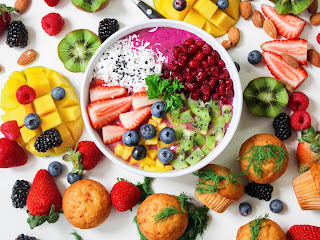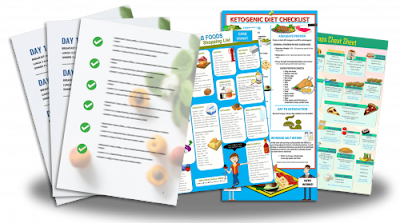HEALTHY FOOD NEAR ME
- Get link
- X
- Other Apps
Healthy Food Varieties
It would be
unreasonable to figure you could effectively get in shape and appreciate what
you're eating with a simple modest bunch of food varieties, regardless of how
delectable, nutritious, and fulfilling they might be. So you should add an
additional program of fat-battling food sources you can eat alongside the
extraordinary food varieties.
They'll loan various
preferences and surfaces to each feast and give many nutrients, minerals,
proteins, and other indispensable supplements. Normally, everyone is high in
fiber, low in fat, and safe in sodium content, as well.
Many have crunchiness
and flavor we've come to want in nibble and snacking food sources. If you're like the vast majority of us, you might have a genuine unhealthy
food-nibbling propensity - a propensity you must change to thin down. Large
numbers of the food varieties in this segment might be commendable
Grain
This filling grain
piles up well to rice and potatoes. It has 170 calories for every cooked cup,
decent degrees of protein and fiber, and moderately low fat. Roman combatants
ate this grain routinely for strength and really grumbled when they needed to
eat meat.
Learns at the College
of Wisconsin show that grain actually brings cholesterol up down to 15
percent and has the strong enemy of disease specialists. Israeli researchers say it
fixes stoppage better than diuretics - and that can advance weight reduction,
as well.
Use it as a substitute
for rice in servings of mixed greens, pilaf, or stuffing, or add it to soups and
stews. You can likewise blend it in with rice for a fascinating surface. Ground
into flour, it makes magnificent bread and biscuits.
Beans
Beans are one of the
most mind-blowing wellsprings of plant protein. Peas, beans, and chickpeas are all known as vegetables. Most normal beans have 215 calories for each
cooked cup (lima beans go up to 260). They have the most protein with the most
un-fat of any food, and they're high in potassium yet low in sodium.
Plant protein is
deficient, and that implies that you really want to add something to make it
complete. Join beans with an entire grain - rice, grain, wheat, corn - to give
the amino acids important to frame a total protein. Then you get a similar
top-quality protein as in meat with simply a negligible part of the fat.
The most well-known grievance about beans is that they cause gas. This is the way to contain that issue. Before cooking, flush the beans and eliminate foreign particles, put them in a pot and cover them with bubbling water, drench for four hours or longer, eliminate any beans that float to the top, then, at that point, cook the beans in new water.
Berries
This is the ideal
weight-reduction food. Berries have normal fructose sugar that fulfills your
yearning for desserts and enough fiber so you retain fewer calories than you
eat. English scientists found that the high satisfaction of insoluble fiber in
natural products, vegetables, and entire grains decreases the assimilation of
calories from food varieties enough to advance width misfortune without
hampering sustenance.
Berries are an
extraordinary wellspring of potassium that can help you in pulse control.
Blackberries have 74 calories for every cup, blueberries 81, raspberries 60, and
strawberries 45. So utilize your creative mind and partake in your preferred
berry.
Broccoli
Broccoli is America's
number one vegetable, as indicated by a new survey. No big surprise. A cup of
cooked broccoli has a simple 44 calories. It conveys a stunning healthful
payload and is viewed as the main disease-battling vegetable. It has no fat,
heaps of fiber, malignant growth battling synthetics called insoles, carotene, and multiple times the RDA of L-ascorbic acid and calcium.
While you're purchasing
broccoli, focus on the variety. The small florets ought to be rich green and
free of yellowing. It would be ideal for stems to be firm.
Buckwheat
It's perfect for
flapjacks, bread, oat, soups, or alone as a grain dish generally called kasha.
It has 155 calories for every cooked cup. Research at the All India
Establishment of Clinical Sciences shows counts of calories including buckwheat
lead to phenomenal glucose guidelines, protection from diabetes, and brought down
cholesterol levels. You cook buckwheat the same way you would rice or grain. Heat
a few cups of water to the point of boiling, add the grain, cover the dish,
turn down the intensity, and stew for 20 minutes or until the water is retained.
Cabbage
This Eastern Europe
staple is a genuine marvel food. There are just 33 calories in a cup of cooked
destroyed cabbage, and it holds generally its healthful goodness regardless of
how long you cook it. Eating cabbage crude (18 calories for every destroyed
cup), cooked, sauerkraut (27 calories for each depleted cup), or coleslaw
(calories rely upon dressing) just once in seven days is sufficient to safeguard
against colon disease. What's more, it very well might be a life span improving
food.
Carrots
What rundown of
well-being-advancing, fat-battling food sources could be finished without Bugs
Rabbit's number one? A medium-sized carrot conveys around 55 calories and is a
healthful force to be reckoned with. The orange variety comes from beta
carotene, a strong disease-forestalling supplement (provitamin A).
Slash and throw them
with pasta, grind them into rice or add them to a sautéed food. Join them with
parsnips, oranges, raisins, lemon juice, chicken, potatoes, broccoli, or sheep
to make delightful dishes. Flavor them with tarragon, dill, cinnamon, or nutmeg.
Add finely hacked carrots to soups and spaghetti sauce - they grant characteristic pleasantness without adding sugar.
Chicken
White meat contains 245
calories for each four-ounce serving and dim meat, 285. It's an amazing
wellspring of protein, iron, niacin, and zinc. Cleaned chicken is best, yet most
specialists prescribe holding on until the wake of cooking to eliminate it because the skin keeps the meat clammy during cooking.
Corn
It's actually a grain -
not a vegetable - and is another food that is gotten a bum rap. Individuals
think it brings close to nothing to the table healthfully and that simply isn't
really the case. There are 178 calories in a cup of cooked parts. It contains great
measures of iron, zinc, and potassium, and College of Nebraska specialists say
it conveys an excellent of protein, as well.
The Tarahumara Indians
of Mexico eat corn, beans, and practically nothing else. Virgil Brown, M.D., of
Mount Sinai Institute of Medication in New York, calls attention to that high
blood cholesterol and cardiovascular coronary illness are practically
nonexistent among them.
Curds
However long we're
looking at shedding pounds and fat-battling food sources, we needed to make
reference to curds.
Low-fat (2%) curds have
205 calories for each cup and are splendidly low in fat while giving good
measures of calcium and the B nutrient riboflavin. Season with flavors such as
dill, or nursery new vegetables such as scallions and chives for additional zip.
To make it better, add
raisins or one of the natural product spreads with no sugar added. You can
likewise utilize curds in cooking, baking, fillings, and plunges where you would
somehow utilize acrid cream or cream cheddar.
Figs
Fiber-rich figs are low
in calories at 37 for each medium (2.25" distance across) crude fig and 48
for every dried fig. Subjects really whined about
being approached to eat a lot of food when taking care of an eating regimen
containing a bigger number of figs than a comparable eating routine with an
indistinguishable number of calories.
Serve them with
different foods grown from the ground. Or on the other hand, poach them in
natural product squeeze and serve them warm or cold. You can stuff them with
gentle white cheddar or puree them to use as a filling for treats and
low-calorie cakes.
Fish
The medical advantages
of fish are more prominent than specialists envisioned - and they've generally
thought of it as a well-being food.
The carbohydrate
content in the normal four-ounce serving of a remote ocean fish runs from a low
of 90 calories in abalone to a high of 236 in herring. Water-pressed fish, for
instance, has 154 calories. It's difficult to put on weight by eating fish.
As far back as 1985,
articles in the New Britain Diary of Medication showed a reasonable connection
between eating fish routinely and lower paces of coronary illness. The
explanation is that oils in fish slight the blood, lessen circulatory strain, and lower cholesterol.
Greens
We're talking collard,
chicory, beet, kale, mustard, Swiss chard, and turnip greens. They all have a
place with a similar family to spinach, and that is one of the geniuses.
Regardless of how enthusiastically you attempt, you can't stack a cup of plain
cooked greens with anything else than 50 calories.
They're loaded with
fiber, stacked with nutrients An and C, and liberated from fat. You can involve
them in servings of mixed greens, soups, goulashes, or any dish where you would
regularly utilize spinach.
Kiwi
This New Zealand local
is a sweet treat at just 46 calories for every organic product. Chinese general
well-being authorities acclaim the scrumptious organic product for its high
L-ascorbic acid substance and potassium. It stores effectively in the cooler
for as long as a month. The vast majority like it stripped, yet the fluffy skin
is additionally palatable.
Leeks
These individuals from
the onion family seem to be goliath scallions and are just as invigorating and
delightful as their better-known cousins. They come as near without calorie as
it gets at a simple 32 calories for every cooked cup.
You can poach or sear
divided leeks and afterward marinate them in vinaigrette or season with Romano
cheddar, fine mustard, or spices. They likewise make a decent soup.
Lettuce
Individuals think
lettuce is healthfully useless, yet nothing could be farther from reality. You
can't avoid it with regards to your weight reduction plans, not at 10 calories
for every cup of crude romaine. It gives a great deal of filling mass for
scarcely any calories. What's more, it's brimming with L-ascorbic acid, as
well. Go past icy mass lettuce with Boston, bibb, and cos assortments, or attempt
watercress, arugula, radicchio, dandelion greens, purslane, and even parsley to
spice up your plates of mixed greens.
Melons
Presently, here's
extraordinary taste and extraordinary sustenance in a low-calorie bundle! One
cup of melon balls has 62 calories, one cup of casaba balls has 44 calories, one
cup of honeydew balls has 62 calories and one cup of watermelon balls has 49 calories.
They have the absolute most elevated fiber content of any food and are tasty.
Toss in attractive amounts of nutrients An and C in addition to an astounding
547 mg of potassium in that cup of melon, and you have a fat-consuming
well-being food stunning.
Oats
A cup of oats or oat
wheat has just 110 calories. Also, oats assist you with getting more fit.
Subjects in Dr. James Anderson's milestone 12-year learn at the College of
Kentucky shed three pounds in two months essentially by adding 100 grams (3.5
ounces) of oat grain to their everyday food admission and that's it. Simply
don't expect oats alone to perform supernatural occurrences - you need to eat a
reasonable eating routine for all our well-being.
Onions
Tasty, fragrant,
reasonable, and low in calories, onions merit an ordinary spot in your eating
regimen. One cup of cleaved crude onions has just 60 calories, and one crude
medium onion (2.15" measurement) has only 42.
They control
cholesterol, meager the blood, safeguard against cholesterol, and may have some
worth in checking unfavorably susceptible responses. In particular, onions
taste great and they're really great for you.
Somewhat bubble, strip
and prepare, treating with olive oil and lemon juice. Or on the other hand, sauté them in white wine and basil, then, at that point, spread them over pizza. Or
on the other hand, cook them in sherry and serve over the glue.
Pasta
The Italians had it
right from the beginning. A cup of cooked glue (without a weighty sauce) has
just 155 calories and fits the portrayal of an ideal starch-focused staple.
Examination at the American Foundation of Baking shows pasta is plentiful in
six minerals, including manganese, iron, phosphorus, copper, magnesium, and
zinc. Likewise make certain to consider entire wheat pasta, which is
significantly better.
Yams
You can make a feast
out of them and not stress over acquiring a pound - and you sure won't leave
the table inclined hungry. Every yam has around 103 calories. Their smooth
orange tissue is one of the most incredible wellsprings of vitamin A you can
consume.
You can prepare, steam
or microwave them. Or on the other hand add them to meals, soups, and numerous
different dishes. Flavor with lemon juice or vegetable stock rather than
spread.
Tomatoes
A medium tomato
(2.5" wide) has something like 25 calories. These nursery delights are
low in fat and sodium, high in potassium, and wealthy in fiber.
A study at Harvard
Clinical School observed that the possibilities passing on from malignant
growth are most minimal among individuals who eat tomatoes (or strawberries)
consistently.
What's more, don't
disregard canned squashed, stripped, entire, or stewed tomatoes. They make
sauces, meals and soups taste perfect while holding their dietary goodness and
low-calorie status. Indeed, even regular spaghetti sauce is a fat-consuming
deal when served over pasta, so ponder bringing tomatoes into your eating
routine
Turkey
Express gratefulness to
those travelers for beginning the brilliant custom of Thanksgiving turkey.
Coincidentally this well-being food masked as meat is great all year for weight
control.
A four-ounce serving of
broiled white meat turkey has 177 calories and dull meat has 211.
Tragically, numerous
people are as yet uninformed about the adaptability and kind of ground turkey.
Anything cheeseburger can do, ground turkey can do to some degree too, from
regular burgers to spaghetti sauce to meat portion.
Some ground turkey contains
skin which marginally expands the fat substance. To keep it truly lean, select
ground bosom meat. Yet, since this has no additional fat, you'll have to add
filler to make burgers or meat portions keep intact.
Four ounces of ground
turkey has around 170 calories and nine grams of fat - about what you'd track
down in 2.5 teaspoons of spread or margarine. Amazingly, a similar measure of
ordinary ground hamburger (21% fat) has 298 calories and 23 grams of fat.
Purchasing turkey has
become simple. It's as of now not important to purchase an entire bird except
if you have any desire to. Ground turkey is accessible new or frozen, as are
individual pieces of the bird, including drumsticks, thighs, bosoms, and
cutlets.
Yogurt
The non-fat assortment
of plain yogurt has 120 calories for every cup and the low-fat, 144. It conveys a
ton of protein and, like any dairy food, is wealthy in calcium and contains
zinc and riboflavin.
Yogurt is convenient as
a morning meal food - cut a banana into it and add your preferred oat.
You can track down ways
of involving it in different sorts of cooking, - sauces, soups, plunges,
fixings, stuffing, and spreads. Numerous kitchen device divisions even sell a
straightforward channel for making yogurt cheddar.
Yogurt can supplant
weighty creams and entire milk in many dishes, saving scads of fat and
calories.
You can substitute half
or the higher fat fixings as a whole. Be imaginative. For instance, join
yogurt, garlic powder, lemon squeeze, a smidgen of pepper, and Worcestershire
sauce and use it to top a prepared potato as opposed to heaping on fat-loaded
harsh cream.
General stores and
well-being food stores sell different yogurts, numerous with added products of
the soil. To control calories and fat substance, purchase plain non-fat yogurt
and add organic products yourself. Creamy fruit spreads or natural product
spreads with practically no additional sugar are an incredible method for
transforming plain yogurt into a tasty sweet treat.
- Get link
- X
- Other Apps




Comments
Post a Comment